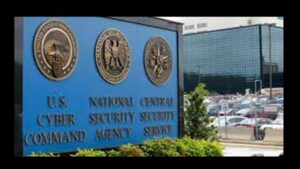Table of Contents
INTRODUCTION
You may have heard about the National Security Act (NSA) many times and also heard about its effects. It is a very strict law but are you aware of this law?
Do you know what kind of punishment is provided in this law? Let us try to answer all the questions through this article and know what is the National Security Act
WHAT IS NSA?
The National Security Act 1982 is an act by the Indian parliament promulgated on September 23, 1980, solving the purpose of preventive detention law. The National Security Act (NSA) allows the central government or a state government to detain a person to prevent him from engaging in any kind of activity that might jeopardize national security. The government may also detain the individual to prevent him from disrupting public order.
The National Security Act (NSA) is a law that provides that if a particular threat comes from a person, that person can be detained and arrested if the government feels that a person is a threat to the country. It was created in 1980 with the aim of giving more power to the government for the security of the country. This Act empowers the government to arrest someone if it feels that he needs to be arrested in the interest of the country. In short, this Act gives the right to arrest any suspect.

The NSA is mentioned in Article 22 (3) of the Indian constitution, which allows preventive detention and restriction on personal liberty for reasons of state security and public order. Also, Article 22(4) mentions that no law is there to authorize the detention of a person for more than three months unless the advisory board is reported with sufficient cause for extended detention. The advisory board consists of judges from the high court.
Under the 44th amendment act 1978, the detention period without obtaining the opinion of the advisory board was reduced from three to two months. Currently, the original period of three months continues, and the provision has not been brought into force.
PROVISIONS OF THE NATIONAL SECURITY ACT
According to the National Security Act-
- The person can’t be charged during the detention period
- The government can detain a person from disrupting public order and maintaining supplies and services essential to the community
- If evidence shows the detainee is proven right, then the period can be extended to more than 12 months.
HISTORY BEHIND NATIONAL SECURITY ACT
- The Preventive detention law in India started in the colonial era
- The Bengal Regulation III was enacted by the East India Company during the presidency of Bengal in 1818. The law was empowered to arrest any individual for criminal intent
- Later in 1919, the British government enacted the Rowlatt Acts of 1919 that allowed the imprisonment of the suspect without trial
- NSA is considered a close iteration of the 1950 Act
- When the Prevention Detention Act 1950 expired on December 31, 1969, Indira Gandhi introduced the controversial Maintenance of Internal Security Act(MISA) in the year 1971
- The MISA also provided similar powers to the government as the Prevention Detention Act
- Eventually, the MISA was repealed in the year 1977 when the Janata Party came to power, but when Indira Gandhi got back into power she brought NSA 1980.
GROUNDS FOR THE DETENTION OF NSA
Individuals’ detention takes place when there is prejudice against the defense of India, its relationship with foreign nations, or the security of India.
PERIOD OF CONFINEMENT
- The maximum period to be detained is 12 months. It can be extended if there is fresh evidence against the detainee by the government
- A person can be held for 10 days without being informed about the charges against them
- During this time, the person can appeal to the high court advisory board but won’t be allowed a lawyer during the trial.
NSA HAS BEEN INVOKED AGAINST YOUTUBER MANISH KASHYAP
Kashyap had shared a video showing migrant labourers from Bihar purportedly being harassed in Tamil Nadu. The video gained a thousand views and an inquiry over the incident was ordered by Bihar Chief Minister Nitish Kumar.
Meanwhile, Tamil Nadu Chief Minister MK Stalin rejected allegations of violence against migrant workers.
A high-level committee of officials from Bihar that probed into the allegations also confirmed that no such attack had taken place in the southern state.
